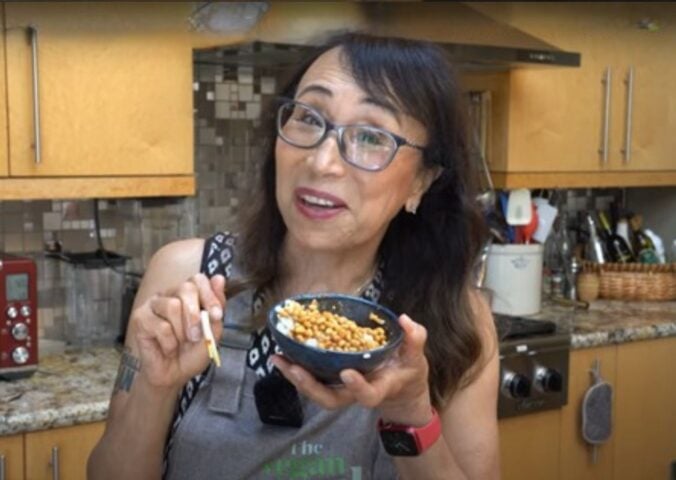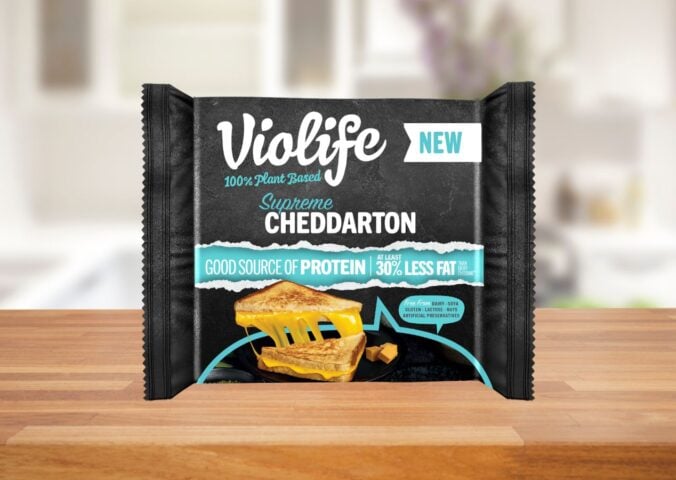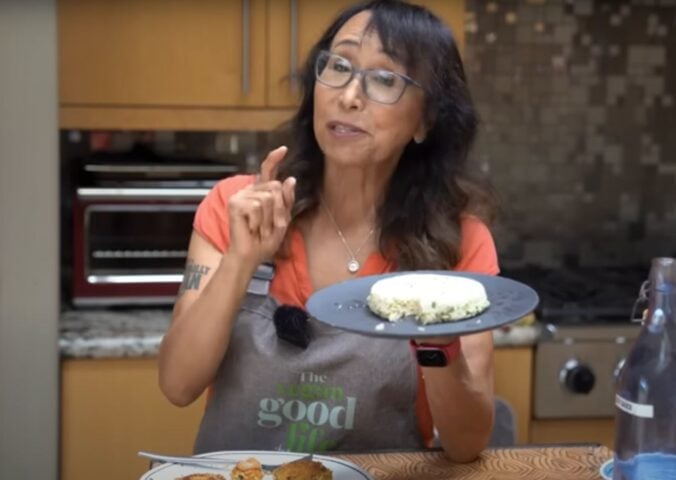This is a sponsored post * [what is this?]
I’m just going to come out and say it — vegans are better.
We adhere to a set of enormously beneficial principles, which improve the planet, animal welfare, and our individual health.
We don’t just complain about problems, we live the solutions (even when the mainstream pushes against them). We’re compassionate. We’re passionate. And we’re determined. And in many ways, that makes us better than non-vegans.
But, we’re not perfect. Far from it. Just like everyone else, we get some things wrong.
That’s what this article is all about. Not to bash us, but to challenge us. Because sometimes digging in our heels ends up causing more harm to our movement than good.
Here are three examples of times we keep getting it wrong, and more importantly, an alternative approach for us to consider.
1. When we belittle anything that isn’t ‘all-in’
When you’ve chosen a lifestyle, especially one that comes with some level of “sacrifice” (for lack of a better word), it’s natural to want others to do the same.
It’s easy to say that if it’s not vegan or plant-based, it’s not good enough.
- Burger King using the same grills as the meat burgers? Why bother?
- Cultivated meat requiring an animal “donor”? Unacceptable.
- Flexitarian? You can do better.
If it’s not “all in,” our first response is often “not good enough.”
An alternative approach:
As much as we (along with the non-human animals and planet) would all like it, the world isn’t going to go vegan overnight. And it probably won’t in our lifetime or the next.
But there were monumental steps in the last few years that likely had a much bigger positive impact on our end goals than growing the vegan population by a percentage point or two.
Cultivated meat, for example. It very much still requires an animal to produce. But using a single sample to produce many millions of tons of meat? In a world with slaughter skyscrapers and bird flu needlessly killing millions of chickens, this is a massive win.
The same goes for the growth of the flexitarian diet, which suggests consuming no more than 9oz of meat per week.
Would [fill in the blank] be better if it was fully vegan? One hundred percent yes.
But billions of people eating more plants will have a bigger impact than millions of perfect vegans. Each step closer is a win, and something for us to celebrate.
2. We assume a plant-based diet is automatically perfect
I’m a content writer for Complement, a supplement company with nutrient solutions designed specifically for plant-based eaters.
Every time we post something online, it gets hammered with comments like these:
“This is absurd. Vegans can get everything they need from plants!”
“All you need is B12!”
Or, “Just eat whole foods.”

And while those comments are technically correct, they’re not the reality for most of us. According to Emily Wagner, a plant-based Registered Dietitian, “Even though a plant-based diet is ideal, all diets, including a plant-based diet, are subject to nutrient deficiencies.
“Due to soil degradation, lack of food diversity, and the fact that most of us don’t consume large amounts of foods like DHA and EPA omega-3-rich seaweed, many plant-based eaters may be experiencing nutrient gaps, even if they don’t realize it.
“Dietary supplements are recommended for optimal nutrition, no matter if you’re plant-based or not.”
An alternative approach:
While the plant-based diet absolutely contains an abundance of nutrients, making the assertion that simply eating plant-based means you don’t risk certain nutrient gaps is probably causing more harm than good.
For the vegan community to thrive, we need thriving vegans. And thriving vegans need an abundance of nutrients — even the ones that are harder to get with plants.
By embracing the idea that no diet is perfect, we help start conversations, and provide people with the tools they need to make veganism a life-time commitment.
Complement does that, for example, through personalized nutrition, which starts with at-home blood testing to identify any nutrient gaps, then individualized nutrient optimization based on what your body and health actually need.
3. We hear criticism and fight back before listening

When you feel so strongly about a cause that you alter your diet and lifestyle to follow it, it’s only natural to roll your eyes at criticism. Especially when the vast majority of those criticisms are incorrect, uninformed, or flat-out lies. But we can’t put up blinders to real critiques or immediately get defensive.
An alternative approach:
The next time someone challenges your diet by questioning plant protein bioavailability or how it can feel limiting at restaurants, what if you simply agreed with them?
“You’re right! There are studies that show plant-based athletes require more protein…”
“Yes, it really can be difficult to find a vegan meal at some restaurants…”
It would be disarming and unexpected. And for a lot of people, it would be just the opening you need to point them toward resources that would ease their concerns.
This isn’t unique to veganism, by the way
It’s not just vegans that get these three things wrong. It’s nearly every community of people who feel passionately about their mission.
We just have to remember that not everyone sees the world the same way we do. And that by listening, looking at the science, and celebrating progress as it comes, our community will only continue to grow and strength.
How Complement can help you achieve your plant-based health goals
Healthy vegans help grow this movement. And one way to ensure you’re supporting your healthy plant-based diet with the nutrients you need to thrive is to remove any guesswork from the equation.
That’s why PBN recommends a new personalized health service called Complement Insight. It’s said to be the first precision nutrition service in the world created specifically for plant-based eaters.
Insight allows you to monitor your micronutrient and biomarker levels through at-home testing, then get exactly the nutrients you need — along with guidance from a plant-based registered dietitian — to address your specific health needs and goals.
And ultimately, leave you feeling more energized and vibrant for the long run.
Click here to get started with Insight.
—
* This is paid-for content. Funds from this article help Plant Based News continue to provide millions of people around the world with free content they know and love. We only work with brands we support and use ourselves.






